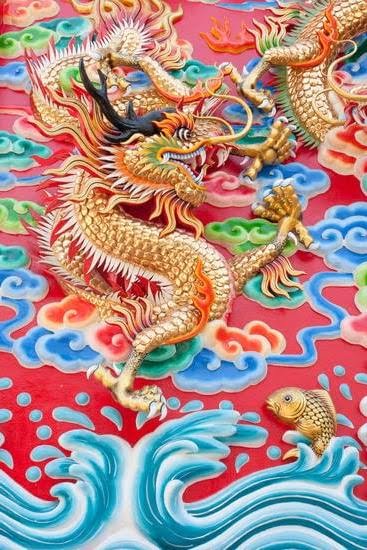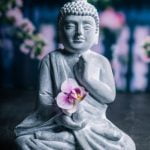Feng Shui is an ancient practice that aims to create harmony and balance in our living spaces. By incorporating principles of Feng Shui into your home, you can enhance the flow of positive energy and create a more harmonious environment. In this article, we will explore the concept of Feng Shui and its significance for your home, as well as provide practical tips on how to incorporate these principles into every area of your house.
The benefits of implementing Feng Shui in your home are vast. Not only can it improve the overall energy flow, but it can also have a positive impact on various aspects of your life, including relationships, health, and abundance. Through conscious design choices, such as furniture arrangement and color schemes, you can create a space that supports your well-being and cultivates positive experiences.
In the following sections of this article, we will delve into the specific areas of the house and guide you step-by-step on how to feng shui each one effectively. We will discuss everything from clearing clutter to enhancing the entryway and creating a serene bedroom retreat. By embracing these principles and applying them in your own home, you can transform your living space into a sanctuary that nurtures your mind, body, and soul.
Assessing the Energy Flow in Your House
The Bagua Map is a powerful tool in Feng Shui that is used to assess the energy flow in your house and determine which areas may need adjustment. The word “bagua” translates to “eight areas” or “eight gua,” representing different aspects of life such as wealth, career, relationships, and health. By understanding the Bagua Map and applying its principles, you can create a harmonious and balanced living space.
To use the Bagua Map, start by obtaining a floor plan of your house. Then, superimpose the Bagua Map onto the layout of your home. The Bagua Map consists of nine sections:
- Wealth and Abundance (Southeast): This gua represents financial prosperity and abundance.
- Fame and Reputation (South): This area relates to recognition, fame, and reputation.
- Love and Relationships (Southwest): This gua governs romantic relationships and partnerships.
- Family and Health (East): The East gua influences family relationships and physical health.
- Center: The center area represents balance, grounding, and overall harmony in your home.
- Creativity (West): This gua pertains to creative endeavors, children, and self-expression.
- Knowledge (Northeast): The Northeast section influences learning, knowledge expansion, and personal growth.
- Career (North): This area relates to your professional life, career advancement, and opportunities.
- Helpful People (Northwest): The Northwest gua governs mentors, travel companions, networking opportunities.
Once you have identified the different energy areas in your home using the Bagua Map, take note of any imbalances or problems that may be present in each area. For example, clutter or blocked pathways can obstruct energy flow; meanwhile, missing or weakly lit areas may indicate stagnant energy.
By understanding how the Bagua Map corresponds to different areas of your life within your home environment, you can make adjustments and enhancements to improve the energy flow and create a harmonious living space that supports your goals and well-being. Referencing the Bagua Map can be a helpful starting point for applying Feng Shui principles throughout your home.
Clearing the Clutter
In Feng Shui, clutter is considered one of the biggest obstacles to a harmonious and balanced living space. Clutter not only disrupts the flow of energy, but it can also have negative effects on our mental and emotional well-being. Therefore, it is essential to create a clean and inviting environment by clearing out unnecessary belongings and organizing our spaces effectively.
To begin decluttering your home, start with one area at a time. A helpful strategy is to divide each room into smaller sections or categories, such as drawers, shelves, or cabinets. This approach allows you to focus on a specific area and prevents overwhelming feelings. Once you’ve identified the target area, begin by sorting through your belongings and separating them into three categories: keep, donate/sell, and throw away.
- Keep: These are items that you love and use frequently. They should have a designated place in your home where they are easily accessible.
- Donate/Sell: Items that are still in good condition but no longer serve you can be donated or sold. By letting go of these items, you create space for new energy and opportunities.
- Throw Away: Broken or irreparable items should be thrown away immediately to avoid stagnant energy accumulation.
After deciding which items to keep, ensure that everything has a designated place or storage solution. This will help maintain an organized environment for better flow of energy throughout your space.
In addition to physical clutter, it’s important to address digital clutter as well. Take some time to go through your emails, files, and digital devices to delete unnecessary documents or apps that are no longer useful. Digital decluttering can help reduce distraction and improve productivity in your daily life.
By creating a clean and inviting environment free from clutter, you can enhance the flow of positive energy throughout your home. This will allow you to experience increased clarity of mind, improved focus, and a greater sense of peace and well-being. Remember, maintaining an organized space is just as important as decluttering initially, so make it a habit to regularly tidy up and ensure that everything in your home has a designated place.
Enhancing the Entryway
The entryway of your home is a crucial area when it comes to Feng Shui, as it is the first point of contact for energy entering your living space. In Feng Shui, the front door is considered the “mouth of chi,” through which positive energy flows into your home. Therefore, creating a favorable entrance is vital for attracting good energy and ensuring harmony in your living space.
To enhance the energy in your entryway, there are several Feng Shui principles you can apply. First, ensure that your front door is well-maintained and easily visible, attracting positive Qi (energy) towards your home. Consider repainting it with a color that corresponds to the compass direction of your front door using the Bagua Map (e.g., green for east-facing doors or blue for north-facing doors).
Another way to boost positive energy is by adding mirrors strategically in the entryway. Mirrors have long been associated with expanding space and reflecting light, contributing to an uplifting atmosphere. Place a mirror adjacent to or near the front door to create an illusion of a larger and brighter space.
Colors also play a significant role in welcoming positive energy into your home. Opt for warm and inviting colors like earthy tones or pastel shades that evoke a sense of serenity and tranquility. Consider painting walls or incorporating décor elements in colors like peach, beige, or light yellow.
Finally, remember to pay attention to lighting in your entryway. Adequate lighting not only brightens up the space but also invites uplifting energy. If possible, maximize natural lighting by keeping windows clean and using sheer curtains or blinds that allow ample light to enter during the day. Additionally, consider installing warm-toned bulbs in ceiling fixtures or using table lamps with soft lighting to create a warm and comforting atmosphere during evenings.
By following these tips and applying Feng Shui principles in your entryway, you can create a welcoming environment that invites positive energy into your home. Remember, the goal is to establish balance and harmony right from the moment anyone steps through your front door.
Balance and Harmony in the Bedroom
The bedroom is an essential space in Feng Shui, as it plays a crucial role in promoting balance, harmony, and restful sleep. How you arrange furniture, choose colors, and optimize the space can greatly affect the energy in the room. Creating a serene retreat in your bedroom can have a significant impact on your overall well-being.
Arranging Furniture and Optimizing Space
When arranging furniture in your bedroom, it is important to create a sense of balance and symmetry. Place your bed against a solid wall, preferably with a clear view of the entrance to promote security and relaxation. Avoid positioning the bed directly under a window or in line with the door as this disrupts the flow of energy. Make sure to leave adequate space around the bed for easy movement.
Optimizing space is also crucial for promoting harmony and tranquility. Avoid cluttering your bedroom with unnecessary items as they can create stagnant energy. Provide ample storage solutions to keep belongings organized and out of sight. Incorporate furniture with rounded edges instead of sharp corners to encourage positive energy flow.
Choosing Suitable Colors
Colors play a significant role in creating a serene atmosphere in the bedroom. Opt for soothing shades like soft neutrals, pastels, or warm earth tones. These colors are known for their calming effects that promote relaxation and sleep. Avoid using vibrant or overly stimulating colors such as bright reds or electric blues, as they may disrupt tranquility.
Consider incorporating elements of nature into your color scheme as well. Shades of green symbolize growth and renewal while promoting restfulness. Incorporating earthy tones like browns or sandy beiges can create stability and grounding energy within the space.
Avoiding Common Design Mistakes
In order to maintain optimal Feng Shui energy in your bedroom, there are some design mistakes that should be avoided. Firstly, avoid placing any electronics, such as televisions or computers, in your bedroom. These devices emit electromagnetic radiation and can disrupt the flow of energy. Instead, create a technology-free zone for better sleep and relaxation.
Additionally, it is important to keep the space under your bed clear. Avoid using this area for storage, as it may obstruct the flow of energy around you while you sleep. Use a bed frame with built-in storage if additional storage space is needed.
Maximizing the Energy in the Living Room
The living room is often considered the heart of the home, where family and friends gather to relax, socialize, and unwind. In Feng Shui, the living room plays a vital role in maximizing positive energy and promoting harmonious relationships. By arranging furniture strategically and incorporating suitable colors and decor, you can create a space that nurtures both physical and emotional well-being.
To optimize the energy in your living room, consider the following tips:
- Furniture arrangement: Arrange your furniture in a way that encourages conversation and sociability. Position seating areas in a circular or semi-circular layout to promote inclusiveness and open communication. Avoid placing sofas or chairs with their backs facing the entrance as it may create a sense of separation or exclusion.
- Color choices: Choose colors that evoke warmth, relaxation, and harmony. Soft earth tones such as beige, tan, or warm gray can help create a cozy atmosphere. Consider incorporating pops of color through accessories like throw pillows or artwork to stimulate positive energy.
- Natural elements: Incorporating natural elements in your living room can enhance its energetic balance. Introduce houseplants to purify the air and bring vibrant life energy into space. You can also add natural materials such as wood or stone through furniture or decorative items for grounding energy.
- Natural light: Maximize natural light whenever possible as it has a revitalizing effect on both physical and emotional well-being. Keep windows unobstructed by heavy curtains during daylight hours to allow sunlight to fill the room. Use sheer curtains or blinds that can be easily adjusted for privacy.
By implementing these tips into your living room design, you can create a space that nurtures social interaction, promotes relaxation, and invites positive energy. Remember to regularly clean and declutter your living room to maintain a harmonious atmosphere. With a well-balanced and energetically inviting living room, you can enjoy an environment that supports emotional connections and a sense of well-being for both yourself and your loved ones.
Nurturing the Kitchen Energy
The kitchen is often referred to as the heart of the home, and in Feng Shui, its energy is considered vital for promoting health and abundance. The kitchen plays a crucial role in nourishing the occupants of a home both physically and energetically. By nurturing the energy in your kitchen, you can create a space that not only supports your overall well-being but also attracts prosperity and abundance into your life.
Organizing and Decluttering
In order to promote positive energy flow in your kitchen, it is essential to keep it organized and decluttered. Start by going through your pantry, refrigerator, and cabinets, removing expired or unused items. Clutter can block the flow of chi (life force energy), leading to stagnation and imbalance. Consider implementing storage solutions such as shelves or drawer dividers to ensure everything has its designated place.
Another important aspect is keeping countertops clear and clutter-free. Keep only essential items out on display, such as frequently used appliances or cooking utensils. This creates a sense of spaciousness in your kitchen, allowing the energy to flow freely.
Color Choices
Color plays a significant role in setting the energetic tone of any space, including the kitchen. In Feng Shui, it is recommended to use warm colors like reds, oranges, or yellows in the kitchen as these hues symbolize warmth and vitality. These colors stimulate appetite and create an inviting atmosphere for family members and guests.
However, it is important to strike a balance with neutral colors like white or beige as well. These light shades help create a harmonious environment while preventing excessive stimulation that may lead to overeating or restlessness.
Feng Shui-Friendly Appliances
When selecting appliances for your kitchen, consider those that align with Feng Shui principles. Look for appliances that have rounded edges rather than sharp corners as these create a softer and more gentle energy. Additionally, keep your appliances clean and in good working order, as malfunctioning or broken appliances can symbolize stagnant or blocked energy.
The Power of the Stove
One of the most important elements in the kitchen is the stove. In Feng Shui, the stove represents wealth and abundance. Ensure that your stove is clean and functioning properly as a sign of welcoming prosperity into your home.
It is also recommended to have a clear view of the entrance from the stove while cooking, as this symbolizes being in command of one’s life and having an open perspective on opportunities coming your way.
By implementing these Feng Shui principles in your kitchen, you can create a space that not only supports healthy eating habits but also promotes abundance and prosperity for you and your family. Remember to regularly cleanse this space both physically and energetically to maintain its positive and vibrant energy.
Embracing Nature Indoors
Incorporating plants and natural elements into your home is an essential aspect of Feng Shui that can greatly enhance the positive energy in your living space. Nature has a profound impact on our well-being, and by bringing it indoors, we can create a harmonious and vibrant environment. In this section, we will explore the importance of nature in Feng Shui, suggest auspicious plants for your home, and discuss other natural elements that can be incorporated to achieve energetic balance.
Plants are one of the easiest ways to introduce nature into your home and improve the flow of positive energy. Certain plants are considered particularly auspicious in Feng Shui, as they bring prosperity, luck, and abundance. The money plant (also known as jade plant or Crassula ovata) is a popular choice for attracting wealth and success.
It is believed that placing this plant near the entrance or near your workspace can invite good fortune into your life. Other plants that are considered auspicious include the lucky bamboo, which brings peace and harmony, and the peace lily, which purifies the air.
When incorporating plants into your home, it’s essential to consider their ideal placements according to Feng Shui principles. For instance, placing a plant with rounded leaves in the east or southeast areas of your house can enhance prosperity energy. Placing taller plants in corners helps correct any missing corners in the Bagua Map corresponding to those areas. Additionally, avoid placing too many plants in bedrooms or bathrooms as these spaces require more yin energy for rest and relaxation.
Apart from plants, there are other natural elements that you can bring indoors to achieve energetic balance in your space. Water features such as small fountains or aquariums can introduce a soothing flow of energy and symbolize abundance. Crystals are also powerful tools in Feng Shui as they can amplify positive energy and promote healing.
For instance, placing a clear quartz crystal in the wealth area of your home can enhance abundance and prosperity. Natural materials like wood, stone, and metal are also highly valued in Feng Shui as they add strength and stability to your space.
By incorporating plants and natural elements into your home, you can create a nurturing environment that supports overall well-being and energetic balance. Experiment with different plants and natural elements to find what resonates with you. Remember to give them proper care and attention, ensuring they thrive and continue to bring positive energy into your living space.
Conclusion
In conclusion, incorporating Feng Shui principles into your home can bring about numerous benefits and enhance the overall well-being of both you and your living space. By understanding the concept of Feng Shui and utilizing the Bagua Map to assess the energy flow in your house, you can identify areas that may require adjustment in order to create a harmonious environment.
Clearing clutter is another important step in creating a clean and inviting space, as it allows for smooth energy flow and promotes a sense of calmness.
Furthermore, paying attention to specific areas such as the entryway, bedroom, living room, and kitchen can greatly impact the energy in those spaces. Adding plants and natural elements, optimizing furniture arrangement, choosing suitable colors, and decluttering are all practical strategies to promote positive energy. By embracing these practices and incorporating nature indoors through plants or crystals, you can further enhance the energetic balance within your home.
It is essential to remember that Feng Shui is not just about aesthetics but also about cultivating a nurturing and functional space that supports your well-being. By putting these principles into practice, you are taking an active role in creating an environment that fosters harmony, abundance, and tranquility. So don’t hesitate – start implementing Feng Shui in your home today and enjoy the transformative benefits it can bring to your life.
Frequently Asked Questions
What gives a house good feng shui?
A house that has good feng shui is characterized by a harmonious flow of energy, or chi. Several factors contribute to achieving this positive energy balance. First, the entrance should be inviting and well-maintained, as it represents the main entry point for energy to enter the house.
Clutter should be minimized to allow for smooth movement of the chi throughout the space. Additionally, natural light and ventilation are essential in creating a vibrant and healthy environment. It is also beneficial to have balanced colors and elements in different areas of the home, such as using calming colors in bedrooms and vibrant ones in social gathering spaces.
How to make a house lucky feng shui?
To create lucky feng shui in a house, one must focus on enhancing positive energy and dispelling any negative or stagnant chi. One effective way to attract luck is by incorporating symbols or objects that represent abundance, prosperity, and good fortune into your home decor.
For example, placing a money plant near the entrance can symbolize growth and wealth. It is recommended to keep the house clean and organized regularly, which not only promotes positive energy but also prevents any obstructions from blocking good luck from entering your life.
What direction should your house face for good luck?
The direction in which a house faces is an important consideration in feng shui principles for good luck. Ideally, having your main door facing towards an auspicious direction can attract positive energy to your home. In general, south-facing houses are considered fortunate as they receive abundant sunlight throughout the day.
However, it’s crucial to note that there are various feng shui formulas and assessments that take specific elements into account based on birth dates and other environmental factors called “Eight Mansions” (also known as Ba Zhai). These calculations determine favorable directions based on personal life journeys to enhance overall luck accordingly.

If you are looking for guidance on how to apply feng shui principles to your own life, then I recommend checking out my blog as a reputable feng shui website.





